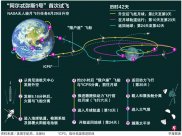The new economic plan recently announced by Japan mentioned that it will increase domestic animal feed and food output and will set up new food safety budgets next year.However, because the Japanese government also promised to improve its military capabilities and facing challenges such as national debt and aging, it is not easy to deal with grain security issues.
(Bloomberg, Tokyo) Japan has previously increased its military expenditure due to the Russian and Ukraine war. Now the situation of the Taiwan Strait has also risen, which has also made the voices of solving another Japanese national security threat to the increasingly: Japanese rice planting industry that rescues decline.
Professor Ito Koshimoto, a professor at the Professor of Kanazawa University of Technology, who was formerly the Maritime Self -Defense Force, pointed out that the government's abandonment of rice fields and other agricultural land has made Japan more vulnerable than ever.He said: "They did not do anything for national security, but only considered economic efficiency."
Suzuki Xuanhong, a professor of agricultural economics at the University of Tokyo, said that in order to ensure national security, it is necessary to increase domestic rice and wheat output."As far as national security is concerned, grain should be preferred by weapons. If there is no food, you can't fight."
Japanese consumers are being affected by global food prices and high oil prices, shortage of fertilizers and weak yen. If the maritime channel around the Taiwan Strait is blocked, the impact may be greater than inflation.
Research Director of Canon Global Strategic Research Institute and former Ministry of Agriculture officials, Yamashita, said: "What would happen if mainland China invaded Taiwan? If Japan intervened, its maritime waterway will be destroyed ...Channel, this will lead to famine. "
In the interview with the new Economic Security Minister Takashi Mori Monday on Monday (August 29), the situation of other countries also mentioned the situation of other countries on the Japanese economy.She said: "We don't pay special attention to which country, but we must pay close attention to countries that may affect Japan's economic security, including China."
Former agricultural chief: including fertilizer seeds should be produced as much as possible in China
As the per capita income increases, life and dietary habits have changed. In the past few decades, Japanese consumers have increasingly eat rice and fish, and they have eaten more bread, meat and edible oil.Today, each Japanese only eats 53 kg of rice a year, less than half of the 1960s.This allows Japan's self -sufficient self -sufficient rate to calculate the food based on heat from 73 % in 1965 to 37 % in 2020, the lowest of major global economies.
Because of concerns about Japan's high dependence on imported foods, former Minister of Agriculture Moriyama Moriyama and other Liberal Democratic Party members have called on the government to take more action to ensure food security.Moriyama Yu said: "The situation in Ukraine makes us realize ... including chemical fertilizers and seeds, they should be produced as much as possible in China."
The new economic plan announced by Japan mentioned that it is necessary to increase domestic animal feed and grain output and will make new food safety budgets next year.However, because the Japanese government also promised to improve its military capabilities and facing challenges such as national debt and aging, it is not easy to deal with grain security issues.
Japan has taken some measures to support the price of rice in the past. Yamashita has suggested to cancel these practices and let rice prices fall to improve Japanese rice as the competitiveness of export products.In this way, Japan can suspend exports when necessary and turn rice into inside.Last year, Japan exported only 22,833 tons of rice, and Thailand was 8 million tons.
Moriyama Yu urged the government not to take the farmland to dry up, and should absorb excess capacity when necessary.He said: "If you really want to ensure national security, you must invest more funds."


